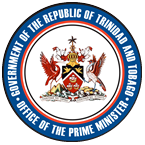- 07 OCT 2017
Fuel Subsidy No Longer Sustainable

In 1974 when the price of oil increased sharply, the Government of Trinidad and Tobago sought measures to cushion the burden of high oil prices on consumers.
The Government passed the Petroleum Production Levy and Subsidy Act (PPLSA) which allowed fuels such as gasoline, diesel and kerosene to be sold to consumers at fixed prices, which were significantly lower than the market price.
The subsidy was funded through the Petroleum Production Levy (PPL) which was imposed on petroleum production businesses and used to finance the difference between the international market and domestic prices for the different types of fuel.
This measure allowed citizens to enjoy one of the lowest fuel prices in the world however, it came at a significant cost to the state. From its inception in 1974 until 1992, the levy (calculated as 4% of the revenues of crude oil Production Businesses) covered the entire value of the subsidy but as production decreased and prices increased, the shortfalls in the levy were required to be financed by the Government directly from the Consolidated Fund.
Over time the rationale for the subsidy was lost and the population came to regard the fuel subsidy as a way for the population to share in the country’s resource wealth. In the present day scenario however, with the global slump in energy prices and the country’s reduction in revenues, the extent of fuel subsidy is simply no longer sustainable.
THE COST
From 2006-2016, aggregate fuel subsidies amounted to TT $31 billion, or an average of 2% of GDP per year. As oil prices trended up between 2009 and 2014, fuel subsidies amounted to nearly TT$3.6 billion per year or about 2.3% of GDP. When crude oil prices plummeted in 2015, subsidies also dropped, to TT$2.1 billion, or 1.4% of GDP, the lowest since the Global Financial Crisis.
At times, the Government had difficulty covering the subsidy through revenues, and thus financed it in part by running arrears to the national oil company, Petrotrin. The level of arrears peaked at TT$7.1 billion (4.3% of GDP) by the end of 2012.
As a result, Petrotrin withheld tax payments to the government until the bulk of the subsidy arrears were cleared in subsequent years through budget provisions. As of December 2015, outstanding arrears stood at TT$549 million.
BENEFITS THE RICH
Fuel subsidies are not the most effective/equitable way to distribute a country’s resource wealth to its population. They impose a considerable fiscal burden and were an important reason for under-saving in the Heritage and Stabilization Fund (HSF).
Historical and cross-country experience indicates that energy subsidies impose substantial fiscal, economic, and environmental costs. Studies have found that the total fuel subsidy has a very regressive impact and disproportionately benefits the rich over the poor. Cotton, Cox, and Ramrattan (2013) calculated that in 2008 the fuel subsidy was worth TT$492 annually for households in the lowest income group but TT$9,436 annually for households in the highest income group.
Chester (2015) estimated the total subsidy benefit to be about TT$12,000 a year for households in the lowest income group, and about TT$24,000 a year for those in the highest income group.
The subsidies have also generated excessive reliance on fossil fuels and automobiles, leading to congestion and pollution; on a per capita basis, Trinidad and Tobago is one of the highest energy users and, also on a per capita basis, CO2 emitters in the world.
Given the drastic reduction in the country’s finances and the demands on the Government to pay for other essentials such as salaries and wages for public servants, medicine for the hospital, pensions and grants for the needy as well as increased costs of national security and the increasing public debt to service these needs, this subsidy can no longer be afforded at this time.





